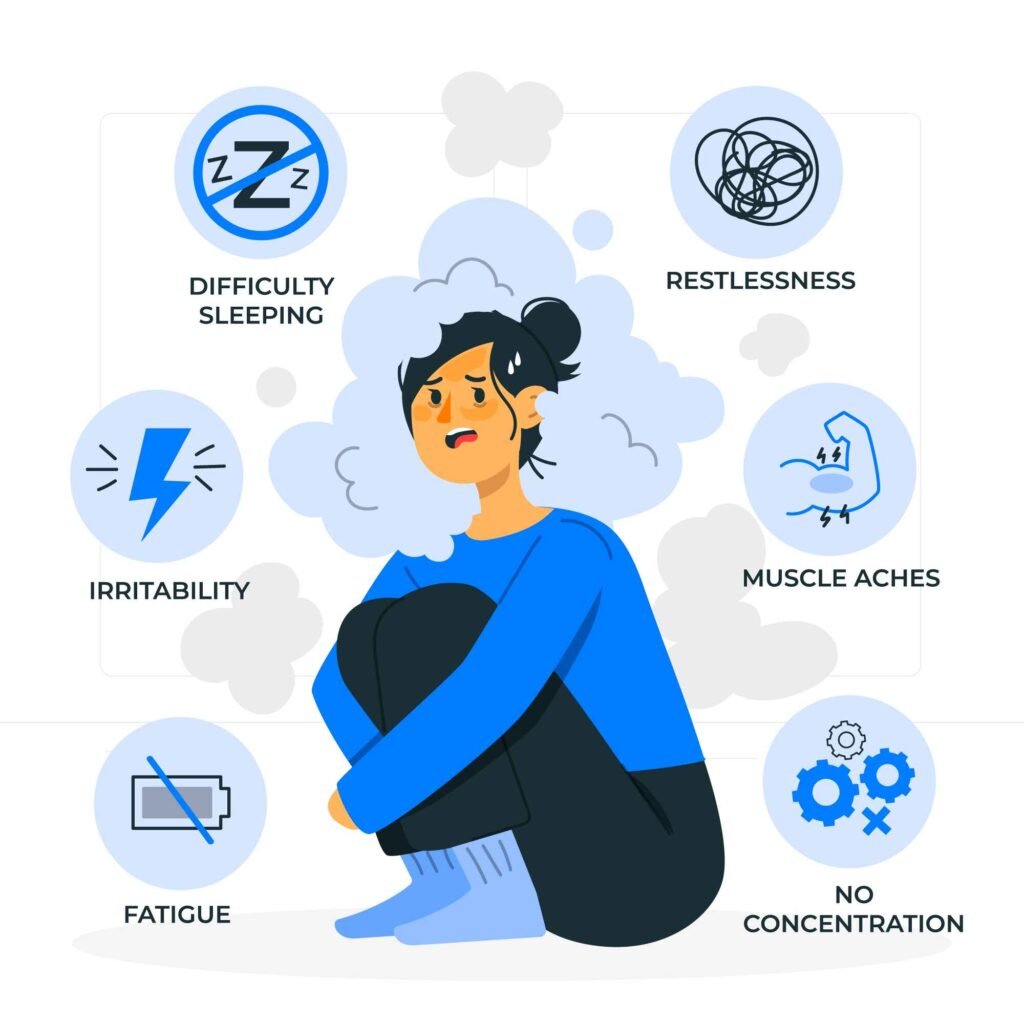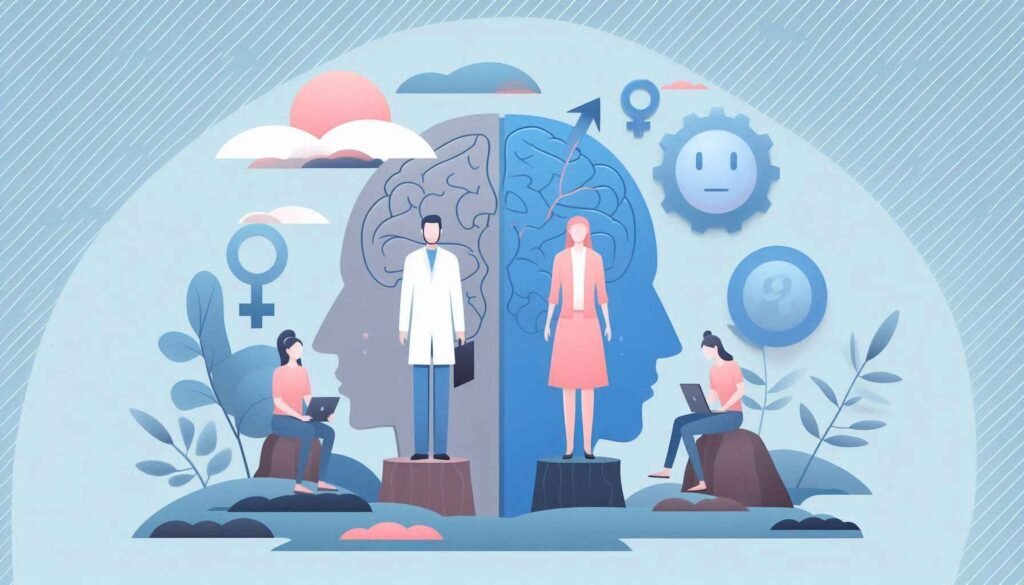
Developing Emotional Intelligence for Better Stress Handling
Introduction
In today’s fast-paced world, stress is a constant companion for students and researchers. Deadlines, assignments, presentations, and balancing personal life can be overwhelming. Emotional intelligence (EI) is a vital tool that equips individuals to manage stress effectively. This blog post delves into the importance of developing emotional intelligence for stress management, offering practical insights supported by evidence from renowned books and research studies.
What is Emotional Intelligence?
Emotional intelligence refers to the ability to recognize, understand, and manage one’s own emotions while effectively navigating interpersonal relationships. Introduced by psychologists Peter Salovey and John Mayer, and popularized by Daniel Goleman in his book Emotional Intelligence: Why It Can Matter More Than IQ, EI is often broken into five key components:
- Self-Awareness
Understanding your emotions and their impact on your actions. - Self-Regulation
The ability to control emotional impulses and adapt to change. - Motivation
Using internal drive to achieve goals despite challenges. - Empathy
Recognizing emotions in others and responding appropriately. - Social Skills
Building and maintaining healthy relationships.
Why Emotional Intelligence Matters for Stress Management
Stress is not just a mental reaction; it has physiological effects. Chronic stress can lead to health issues such as high blood pressure, weakened immunity, and poor mental health. Emotional intelligence acts as a buffer against these adverse effects. Here’s how:
1. Increased Self-Awareness Reduces Overwhelm
When students and researchers are self-aware, they can identify the triggers of their stress. For example, acknowledging procrastination as a stressor allows individuals to address it with time management techniques.
“Awareness is the first step in healing.” – Daniel Goleman, Emotional Intelligence
2. Better Emotional Regulation
EI helps in managing strong emotions like frustration, anger, or anxiety. Instead of reacting impulsively, individuals learn to pause, reflect, and respond thoughtfully.
- Example: A student facing exam stress might practice deep breathing to regain focus rather than panicking.
3. Improved Problem-Solving Abilities
Stress often clouds judgment, but emotionally intelligent individuals are better at viewing problems objectively.
- Case in Point: A researcher dealing with failed experiments can reframe setbacks as learning opportunities, minimizing emotional strain.
4. Enhanced Empathy Promotes Social Support
Empathy allows individuals to build meaningful relationships, which are crucial for stress relief. Having a trusted support network can make challenges feel manageable.
Developing Emotional Intelligence
EI is not an innate trait; it can be cultivated. Below are strategies for students and researchers to enhance their emotional intelligence:
1. Practice Mindfulness
Mindfulness involves staying present in the moment and observing thoughts without judgment. It improves self-awareness and emotional regulation.
- Exercise: Spend 10 minutes daily practicing mindful breathing or meditation.
- Reference: Wherever You Go, There You Are by Jon Kabat-Zinn emphasizes the role of mindfulness in emotional resilience.
2. Engage in Reflective Journaling
Writing down daily experiences and emotions helps in identifying recurring stress patterns and triggers.
- Tip: Include a section on “what I could do differently” for self-improvement.
3. Learn Empathy Through Active Listening
Empathy can be strengthened by giving undivided attention during conversations.
- Exercise: During group discussions or study sessions, practice summarizing what others say to ensure understanding.
4. Use Stress-Relief Techniques
Techniques like progressive muscle relaxation, guided visualization, or exercise release tension while improving emotional regulation.
- Recommended Reading: The Relaxation Response by Dr. Herbert Benson highlights evidence-based stress reduction practices.
5. Set Realistic Goals
Overambitious goals often lead to burnout. Break larger tasks into smaller, manageable milestones.
- Example: For a thesis, create a weekly research and writing schedule.
6. Seek Constructive Feedback
Constructive criticism from peers or mentors can improve self-awareness. Approach feedback as an opportunity to grow rather than a personal attack.
- Insight: Daniel Goleman emphasizes that feedback loops are critical for developing self-regulation in Focus: The Hidden Driver of Excellence.
Building EI into Academic Life
Students and researchers are uniquely positioned to integrate EI into their routines. Some actionable ways include:
- Joining discussion groups to practice social skills.
- Volunteering for projects to enhance teamwork.
- Scheduling periodic self-assessments to monitor emotional growth.
Enhancing Self-Awareness for Better Stress Management
Self-awareness is the cornerstone of emotional intelligence. Without it, managing emotions effectively is impossible. Here are strategies to foster self-awareness:
1. Track Emotional Patterns
Understanding recurring emotions, especially during high-stress situations, helps identify triggers.
- Example: A student may notice they feel overwhelmed every time they delay starting an assignment. Recognizing this pattern is the first step to change.
- Tip: Maintain an emotional journal. Documenting emotions and their triggers daily can provide clarity over time.
2. Ask Reflective Questions
Regularly ask yourself questions to gain deeper insights into your feelings and behaviors:
- What emotions am I experiencing right now?
- Why am I feeling this way?
- How is this emotion influencing my actions or decisions?
3. Leverage Mindfulness Practices
Mindfulness techniques, such as body scanning or focused breathing, create a pause between emotional triggers and responses.
- Key Insight: Practicing mindfulness increases awareness of physical sensations associated with stress, enabling quicker interventions.
Building Self-Regulation Skills
Self-regulation refers to the ability to manage emotions and respond calmly in stressful situations. Strengthening this skill ensures better control over stress responses.
1. Pause and Reflect
When faced with stress, pause before reacting. Taking a few moments to breathe and collect your thoughts prevents impulsive decisions.
- Exercise: Count to ten and take deep breaths when overwhelmed.
2. Practice Stress-Relief Techniques
Effective stress management often involves calming the nervous system.
- Techniques to Try:
- Progressive muscle relaxation (tensing and relaxing muscle groups).
- Guided visualization (imagining peaceful scenes or positive outcomes).
- Physical activity, like yoga or brisk walking, to release built-up tension.
3. Create Healthy Routines
Routine-building minimizes decision fatigue and keeps stress manageable.
- Example: Scheduling daily study sessions can reduce the pressure of last-minute preparation.
Boosting Motivation to Overcome Stress
Motivation, a core component of EI, helps maintain focus even under pressure. For students and researchers, staying motivated is vital to navigating academic demands.
1. Set Intrinsic Goals
Goals driven by personal values or interests are more sustainable than external rewards.
- Example: Instead of focusing solely on grades, strive to gain deeper knowledge in your subject area.
2. Visualize Success
Visualizing the achievement of goals can boost confidence and drive.
- Tip: Spend five minutes daily imagining how completing tasks will feel, such as submitting a well-prepared paper or delivering a successful presentation.
3. Break Down Big Tasks
Large projects often feel overwhelming. Divide them into smaller, actionable steps to stay motivated.
- Example: Break a 5,000-word research paper into manageable sections like drafting, revising, and formatting.
Fostering Empathy to Strengthen Relationships
Empathy allows individuals to connect with others emotionally, making it a crucial skill for students and researchers who frequently work in collaborative settings.
1. Listen Actively
Active listening involves fully focusing on what others are saying without interruption or judgment.
- Exercise: During group discussions, repeat back key points to ensure mutual understanding.
2. Acknowledge Others’ Feelings
Understanding and validating emotions strengthens interpersonal bonds.
- Example: If a peer expresses frustration about a group project, acknowledge their stress before offering solutions.
3. Volunteer for Community Engagement
Engaging in community activities enhances empathy by exposing you to diverse perspectives and experiences.
- Tip: Join university clubs or volunteer for events to practice interacting with people from different backgrounds.
Cultivating Social Skills for Effective Stress Management
Strong social skills help build supportive networks that act as buffers against stress. These networks offer emotional support and practical advice during tough times.
1. Build Rapport with Peers and Mentors
Positive relationships with classmates, professors, and supervisors can create a safety net during academic or research-related challenges.
- Exercise: Initiate casual conversations and find common ground with others to build rapport.
2. Seek Support When Needed
Reaching out for help is not a sign of weakness but a hallmark of emotional intelligence.
- Example: If you’re struggling with research methodologies, consult a mentor or join study groups.
3. Improve Conflict Resolution Skills
Misunderstandings are inevitable in collaborative settings, but emotionally intelligent individuals resolve conflicts calmly.
- Exercise: Use “I” statements to express your feelings without assigning blame (e.g., “I feel overwhelmed when deadlines aren’t met”).
Leveraging Emotional Intelligence in Academic Challenges
Students and researchers face unique stressors, such as tight deadlines, complex coursework, and competitive environments. Emotional intelligence provides tools to navigate these challenges effectively.
1. Managing Presentation Anxiety
Public speaking is a common source of stress for students.
- EI Solution: Focus on self-regulation techniques like deep breathing or visualization to calm nerves before presentations.
2. Handling Peer Competition
Healthy competition can motivate, but excessive comparison leads to stress.
- Tip: Practice self-awareness to focus on your own progress rather than comparing it to others.
3. Balancing Personal and Academic Life
Overcommitting to academic responsibilities often leads to burnout.
- Solution: Develop time-management skills and prioritize tasks to maintain a healthy balance.
The Long-Term Benefits of Emotional Intelligence
1. Enhanced Academic Performance
Students and researchers with high emotional intelligence excel academically because they manage stress effectively and maintain focus.
- Key Advantage: They approach challenges with resilience and view setbacks as opportunities for growth.
- Evidence: A study published in the Journal of Educational Psychology highlights that emotionally intelligent students have better problem-solving abilities and stronger decision-making skills.
2. Improved Mental Health
EI fosters self-awareness and self-regulation, which reduces the risk of chronic stress, anxiety, and depression.
- Impact on Stress Reduction: Students who use EI techniques report lower cortisol levels and greater emotional stability during exams or research deadlines.
- Recommended Reading: Emotional Intelligence 2.0 by Travis Bradberry and Jean Greaves emphasizes the link between EI and emotional well-being.
3. Stronger Professional Relationships
As researchers transition into professional careers, EI becomes a valuable asset in workplace interactions. High EI leads to:
- Better collaboration with colleagues.
- Conflict resolution in team environments.
- Enhanced leadership potential.
4. Greater Life Satisfaction
EI encourages empathy, gratitude, and positive social connections, all of which contribute to a fulfilling life.
- Example: Students who practice empathy often have stronger friendships and support systems, making life’s challenges easier to handle.
Advanced Techniques for Developing Emotional Intelligence
1. Emotional Regulation Through Cognitive Reappraisal
Cognitive reappraisal involves changing the way you perceive a stressful situation.
- Exercise: Instead of viewing a failed experiment as a setback, reinterpret it as valuable data for refining your methodology.
2. Developing Emotional Agility
Emotional agility, as discussed in Susan David’s book Emotional Agility: Get Unstuck, Embrace Change, and Thrive in Work and Life, involves being flexible with your thoughts and feelings.
- Practice:
- Acknowledge emotions without judgment.
- Identify the core value behind your emotional reaction.
- Take action aligned with that value rather than reacting impulsively.
3. Expanding Your Empathy Through Perspective-Taking
Empathy grows when you consciously put yourself in another person’s shoes.
- Exercise: During a disagreement, pause and ask yourself, “What might this person be feeling or experiencing?”
- Pro Tip: Engage in cultural or group activities that expose you to diverse viewpoints.
4. Using Technology to Improve EI
Modern apps and tools offer tailored exercises for emotional intelligence improvement.
- Recommendations:
- Moodpath: Tracks emotional patterns and suggests mental health strategies.
- Headspace: Provides guided mindfulness meditations to improve self-regulation.
Sustaining Emotional Intelligence Over Time
Developing emotional intelligence is not a one-time effort but a continuous journey. Here are some ways to ensure lasting growth:
1. Regular Self-Reflection
Set aside time weekly to reflect on your emotional reactions and interpersonal interactions.
- Prompt Questions:
- What emotions did I struggle with this week?
- How could I have handled certain situations differently?
2. Commit to Lifelong Learning
Stay updated with books, workshops, and seminars that focus on EI.
- Reading Suggestion: Primal Leadership: Unleashing the Power of Emotional Intelligence by Daniel Goleman offers insights into maintaining EI in leadership roles.
3. Practice Gratitude
Gratitude rewires the brain for positivity and helps sustain emotional resilience.
- Exercise: Maintain a gratitude journal and list three things you are thankful for each day.
4. Seek Mentorship and Peer Feedback
Surround yourself with individuals who value emotional intelligence. Feedback from mentors or peers can highlight blind spots in your EI development.
- Tip: Join academic or professional networks to foster meaningful connections.
The Role of EI in Achieving Balance
Achieving a balance between academic, personal, and professional life is crucial for long-term well-being. EI helps create this balance by:
- Prioritizing tasks without overcommitting.
- Building emotional resilience to handle unexpected challenges.
- Enhancing communication, which minimizes misunderstandings and conflict.
Case Study: A Researcher’s Journey
Consider a researcher juggling multiple responsibilities: publishing papers, mentoring students, and personal commitments. By applying EI principles:
- They practice self-regulation to remain calm under pressure.
- Use empathy to understand team dynamics during collaborative projects.
- Leverage motivation to stay focused on long-term goals despite setbacks.
Overcoming Barriers to Developing Emotional Intelligence
While EI offers numerous benefits, some common barriers may hinder its growth:
1. Cultural or Social Conditioning
Certain cultural norms may discourage open emotional expression, making it harder to develop self-awareness or empathy.
- Solution: Create safe spaces, such as discussion groups or counseling sessions, to explore and express emotions.
2. Lack of Time
Students and researchers often feel they lack the time to focus on personal development.
- Solution: Integrate EI practices into existing routines. For instance, practice mindfulness during commute times or between study breaks.
3. Fear of Vulnerability
Opening up about emotions can feel risky, especially in competitive environments.
- Solution: Start small by sharing thoughts and feelings with trusted individuals, gradually building comfort.



